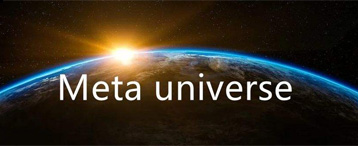-
10 Practical Uses of NFTS Will Transform Our Society in the Future
 joint
joint 2022-09-21
2022-09-21 3093
3093 NFT
NFT
-
Summary:In the future, the 10 practical uses of NFTs will transform our society in 10 years. What are these 10 practical uses? Here are the introduction.
In the future, the 10 practical uses of NFTs will transform our society in 10 years. What are these 10 practical uses? Here are the introduction.
1. Legal documents and certification
We are an increasingly paperless society. Digital documents, digital signatures, and online receipts have become very popular in the last decade. Blockchain fits perfectly with the authenticity of legal documents and, if implemented properly, holds great promise. Legal documents will become faster, more efficient and hopefully more transparent. We saw a recent case where a British judge allowed litigation through NFT airdrops. Suppose that identity documents such as passports and national ID cards become fully digitized assets stored in a blockchain. In this case, it is easy to associate our identity with legal documents, such as marriage certificates in the form of NFTS, which can be publicly viewed by accessing the person's official digital ID.
2. Pass
Event ticketing and NFTS are like peanut butter and jelly. Industries such as airlines, commercial events and the entertainment industry can finally rely on secure, transparent systems to better control tickets, passes and memberships. Eventually, we'll use our smartphones to seamlessly trade tickets in NFTS.
For example, Real Madrid, one of the biggest football clubs. Due to high demand, their tickets are relatively expensive and the secondary market is plagued by fraud and fake tickets. Eventually, clubs like Real Madrid may offer tickets in the form of NFTS, and buyers will be able to verify their authenticity in the blockchain and avoid being scammed on the secondary market. In addition, because of smart contracts, clubs may set a 2 percent royalty on each sale in the secondary market. This gives the club an extra 2 per cent in royalties every time a ticket is transferred indefinitely to a new owner. This opens up a whole new revenue stream that would not have been possible without NFTS.
3. Non-transferable tokens
NFTS that cannot be transferred from wallet to wallet have great potential for academic document verification. Universities will eventually be able to award full degrees in the form of NFTS, which cannot be transferred to others. Its authenticity is officially verified in the blockchain and recognized by other institutions. Perhaps eventually, we will see a Web 3 version of Linkedin in which professionals will publicly showcase their educational NFT achievements.
4. Proof of attendance
A POAP (Proof Of Attendance Protocol) NFT is a specific type Of token that demonstrates an individual's participation in an event or experience in the physical or digital world. The main purpose of POAP NFTS is to prove that people attend specific academic courses, business seminars, or even sports marathons, to name a few. Eventually, proof of attendance will become commonplace. We will make it a requirement to attend real-life events where people may need to scan their digital ID on their smartphone at the event entrance. In return, they will automatically receive a certificate of attendance airdropped into their wallet, which may or may not be transferred to someone else.
5. Tokenization of physical assets
One of the biggest problems today is proving the authenticity of physical and digital assets. Counterfeiting is on the rise and is expected to exceed $3 trillion by 2022. The tokenization of physical assets is critical to the long-term success of this technology, and NFTS act as a bridge between the physical and digital worlds. In the next few years, we will be able to verify whether an expensive piece of jewelry is real or fake. Large luxury brands are likely to implement blockchain technology in their supply chains to track inventory and physical collection releases. Jewelry brands may sell products linked to digital ownership certificates in the form of NFTS, physical assets will be able to be purchased in-store through crypto wallets, and receipts will be recorded as NFTS.
6. Identification
Showing proof of ownership is directly related to personal identity. NFTS publicly show the owner of a particular asset and the amount of money paid for it. Once blockchain becomes the norm, intellectual property, patents and trademarks will be linked to individuals' digital identity cards. Currently, legal paperwork is slow, inefficient and, in many cases, very bureaucratic. Let's take real estate. Suppose a person decides to buy a nice apartment, he will be able to pay the entire amount in a single transaction using a personal cryptocurrency wallet and immediately receive legal proof of ownership of the property in the form of an NFT. Once regulated, the government can verify that it is the actual owner of the property, and transactions will be very transparent.
7. Governance and voting
In many countries, the voting process was inefficient, dishonest and, in some cases, corrupt. Voters must bring photo ID and proof of residence when visiting polling centers. NFTS can help solve this problem by providing digital identities for people who do not have physical documentation of who they are and where they live in the country. Storing the official digital ID in a blockchain legally recognized by its municipality would facilitate the voting process and result in a more transparent voting system. NFTS will reduce fraud and act as a record of voters and their votes.
Thanks to blockchain, the creation of decentralized autonomous organizations (DAOs) has become very popular as a governance system. In the DAO, there is no central authority; Instead, power is distributed to token holders, who collectively vote in relation to a particular decision. This would become the norm for managing projects, companies and even political parties, where the direction of the project would be determined by the collective decision of the token holders of a particular organization. Going forward, the government may even be run as DAOs and become more decentralized, with power distributed to selected people.
8. Logistics and supply chain
Logistics is about tracking assets, and blockchain is the ideal solution for a fully transparent and efficient supply chain. Companies are increasingly adopting NFTS to track their physical inventory. Ultimately, we will live in an era where product data, tracking numbers, and logistics are all fully managed on blockchain. With NFTS, companies can issue smart contracts related to goods and delivery services, enabling a fully transparent and traceable record of every item in the supply chain from raw materials to end users. All of this data is critical to improving productivity and efficiency related to logistics and transportation on a global scale.
9. The real estate
One of the most attractive aspects of NFTS is their ability to be linked to high-value physical assets, such as private and commercial real estate. One of the biggest problems we face in the real estate market is paperwork, licensing, notaries and many intermediaries such as banks and agents. Things that can be simplified in a single transaction between two parties have many additional costs. NFTS will help speed up the purchase or sale of physical assets by transferring ownership directly in a single transaction.
The property can now be divided into five NFTS worth $250,000 each ($1 million total). This way, you can become one of the owners without having to buy the entire house yourself. In other words, it lowers the cost of entering the housing market and makes it easier for others to do so. Plus, if you both agree, you can expand your share of the house in the future by buying their NFTS.
10. Games and in-game assets
The gaming industry is estimated to be worth $70 billion. That's without implementing NFTS. By increasing the monetization and tracking of digital game assets, the gaming industry will be one of the areas in which NFTS will excel over the next decade. With the consolidation of the metaverse, the gaming industry may have the fastest adoption rate among the younger generation.
In-game incentives such as play-to-earn are becoming increasingly popular in developing countries. With NFTS, game players can get paid to play games regardless of their location. This presents a huge opportunity for millennials in developing countries. We've seen examples where the average player earns about $1,500 a month, more than their full-time job in their home country.
Disclaimer:As an open information publishing platform, shilian only represents the author's personal views and has nothing to do with shilian. If the article, picture, audio or video contains infringement, violation or other inappropriate remarks, please provide relevant materials and send it to: 2785592653@qq.com.
Hint:The information provided on this site does not represent any investment suggestion. Investment is risky, and you must be cautious when entering the market.
ShilianFan group:Provide the latest hot news, airdrop candy, red envelopes and other benefits, WeChat: rtt4322.
















